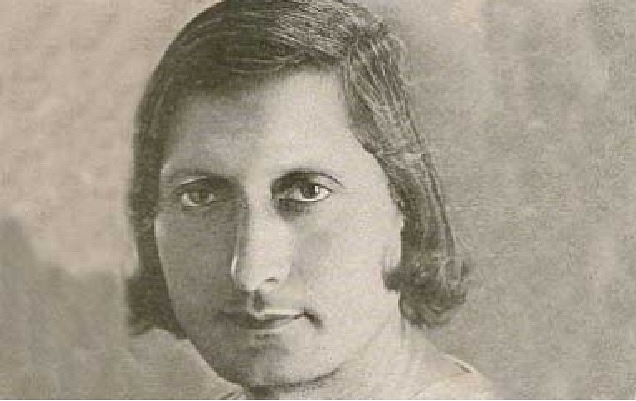Magazine
Philosophy Of A Rebel
- Written eight decades ago, this autobiography of a great Hindi poet startles us even today with its candour and modernity of outlook.

Suryakanth Nirala
ONE OF THE pioneers of the Chhayavad move-
ment in Hindi poetry of the first half of the 20th century, Suryakant Tripathi Nirala’s A Life Misspent’s title is steeped in irony. A coming-of-
age account written when he was 42 years old, what startles is the candour with which Nirala unfolds his experiences. The writing—expertly translated by Satti Khanna—is marked by poetic compression, revealing a quintessential rebel who didn’t hesitate to question traditions that insisted on the burial of individuality.
Born in Bengal and unfamiliar with the Khari Boli form of Hindi, Nirala focuses on his days after he turns 16 and is married off to a 13-year-old girl from Dalmau in Uttar Pradesh. “I believed like Bengalis that Aryans became civilised when they crossed into Bengal and really civilised when they came into contact with the British,” he notes in a comic tone that intermittently rears its head even when he documents his encounters with tragedies. Not at all easy to achieve, but then Nirala was no ordinary author. He was a multi-faceted writer, who, as many masters do, lived in penury.
It is in Dalmau that a young Nirala finds himself getting attracted to a man named Kulli Bhatt, whose presence is an eternal shadow in this slim volume. The author wants to spend time with him, oblivious of any deeper mo-
tive in Kulli’s words: “How wonderfully the paan juice traces your lips, turning them into daggers.” Towards the end of the book, Kulli dies from venereal disease after being daring enough to live with a Muslim woman.
But, left in the arms of meaningful silence is a description of his friend’s sexuality. “I won’t cheapen words by writing down what Kulli thought of me...” Nirala hints. Most writers in Hindi of his age wouldn’t have ventured even this far.
The son of a security guard, who mastered Khari Boli after his wife Manohara Devi—who died of influenza during an epidemic in his early youth—introduced him to the form, Nirala’s experiences leave him increasingly disillusioned as the book grows and the voice of his mind becomes louder.
Wondering why we have been “quick to accept English ways”, “What had been passed on...led to stifled thought and cultural indigestion,” he says. Decades later, the prose stares us in the face, reflecting the zeitgeist we inhabit.
Not at all hesitant about quitting his permanent job when the Raja, who had offered him employment, doesn’t accept the fact that Nirala had caught his superintendent drunk, he leaves for his village. It is not a resignation the young man can afford; but adversity fails to tame his professional integrity.
When Kulli starts a school for the untouchables, he invites contempt. Nirala reflects on the parochialisms of opinion-weavers, who make untouchables disappear from history: “They had passed on to the other side, generation after generation, heads bowed low....They could not say with pride that their ancestors had com-
posed the Ramayana or the Mahabharata....My mind clouded.”
Inspired by men like Ramakrishna Paramahansa and Rabindranath Tagore, Nirala, who was at the forefront of a dynamic literary movement, turns A Life Misspent into an essential read mainly because of his reflections on life beyond creativity. This attains a rare tragic beauty just before, and with, Kulli’s death.
In spite of working for the Congress, Kulli fails to attract the attention of Mahatma Gandhi, notwithstanding the latter’s commitment to bring about social reform by initiating a change in the lives of the untouchables. He quotes Kulli, who wrote several letters to the Mahatma: “Mahatma Gandhi remained true to his vow of silence. I believe Mahadev Desai scrawled a sentence,” advising him to contact the party office in Allahabad. Eventually, after writing to Jawaharlal Nehru “a second time” in a tone, which showed he had “nothing to lose”, he received money from the Rae Bareli office— but only once.
Before Nirala finds a way to acquire financial assistance from the Congress committee in Dalmau for Kulli’s treatment, he confronts refusal because the money that had been kept aside for the reception of Nehru’s sister Vijayalakshmi Pandit, then Minister of Local Self-Government, had been returned to the party office. A Brahmin by birth, Nirala even officiates at Kulli’s 11th-day ceremony after he dies, the man in him far ahead of his times.
At the end, the book leaves us with the question: when will our society change? We find very few answers, as the author once did.
Introducing ElectionsHQ + 50 Ground Reports Project
The 2024 elections might seem easy to guess, but there are some important questions that shouldn't be missed.
Do freebies still sway voters? Do people prioritise infrastructure when voting? How will Punjab vote?
The answers to these questions provide great insights into where we, as a country, are headed in the years to come.
Swarajya is starting a project with an aim to do 50 solid ground stories and a smart commentary service on WhatsApp, a one-of-a-kind. We'd love your support during this election season.
Click below to contribute.
Latest